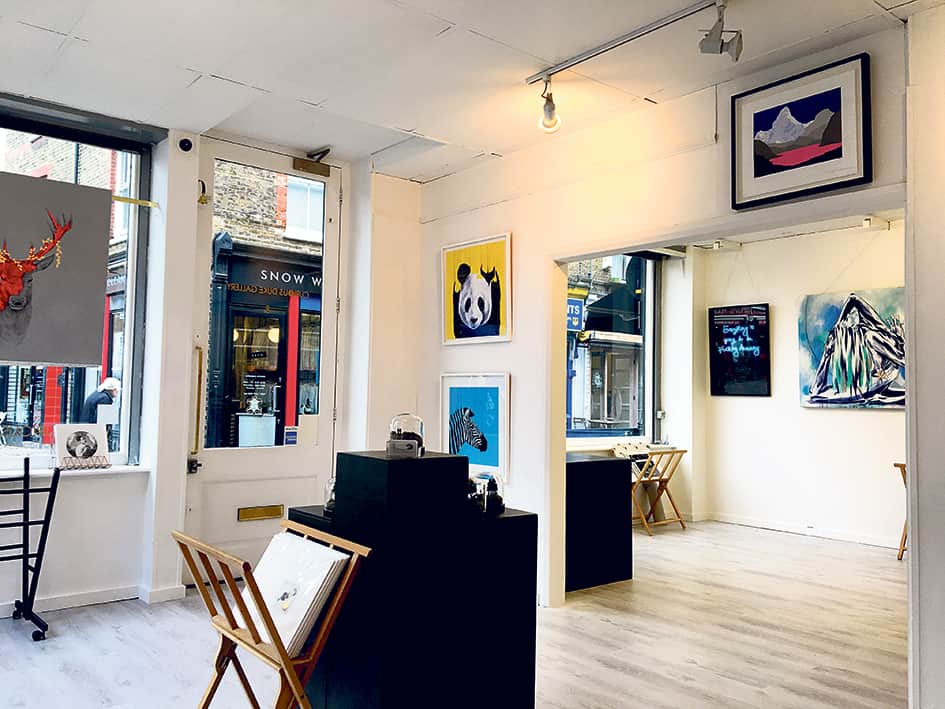Of the many questions gallerist Eleni Duke gets asked by first-time art buyers, by far the most common is: “How should I frame it?” So much so, that when space became available for her to expand her gallery Curious Duke on tightly held Whitecross Street at the beginning of the year, she knew exactly what to do with it.
Curious Duke Framing was a natural progression for one of London’s original ‘anti-gallerists’, who has made it her mission to break down stigmas of superiority still attached to the art world and make it more accessible for the masses.
“People often think they need a degree in art to appreciate a piece, let alone spending a lot of money on it, which is totally wrong,” she explains. “You should be able to just like a painting for the fact that it’s blue, or not even know why you like it, just that you like it.”
There’s plenty to like about the bright gallery space on the corner of Banner Street, home to a rotating solo exhibition of works on one side, and a mix of artists and the framing studio on the other.

It’s walls are busy with an achingly cool mish mash of collages, photographs, prints and paintings; though not so busy that the space overawes.
It is this careful balance that has established Curious Dukes as a breath of fresh air in the often stuffy art world. Frustrated by what she describes as “cold” and “unwelcoming” galleries and poor accessibility to emerging artists, Eleni launched Curious Duke as a three-month pop-up in Whitecross Street in 2011, specialising in affordable urban and contemporary artworks and named for her belief that “all good art should provoke a question”.
The ‘anti-gallery’ was so popular, she made it a permanent fixture on Whitecross Street, and has spent the last five years amassing a cohort of around 100 emerging and mid-career artists, a process that is equal parts trained eye and gut feeling. “I just think about whether I would have a piece in my own home,” she says. “It’s not in me to be really salesy, so if I can’t connect with a piece and get excited about it then I’m not going to be able to sell it to someone.”
Instead ‘selling’ art at Curious Duke involves everything from social media stalking for undiscovered gems to climbing drill in hand to mount pieces herself; quite literally taking care of everything “up to the point where it’s hanging on the wall”.
In 2014 she launched the Secret Art Prize, a competition for emerging artists that judges street art as ‘fine’ art, one of the first in the UK to do so. Submissions are open for the 2017 award, which has grown to include a solo show at the Moniker Art Fair as well as representation by Curious Duke and a cash prize.
The 2016 winner, Stephen Whatcott, an abstract painter, says the award offers “a unique and valuable” level of support. There are so many artists out there with arms raised, shouting, trying to be heard,” he says. “The Secret Art Prize provides a platform for artists to present their work to the right audience.”
Eleni, for her part, hopes improved accessibility leads to a greater appetite for original artwork among younger generations. “If you think about it, art is one of the few things you can buy that nobody else has, a true one-off,” she says. “I think we’re seeing a greater appreciation of that and I hope it continues to grow.”
Curious Duke Gallery, 173 Whitecross Street EC1Y 8JT







